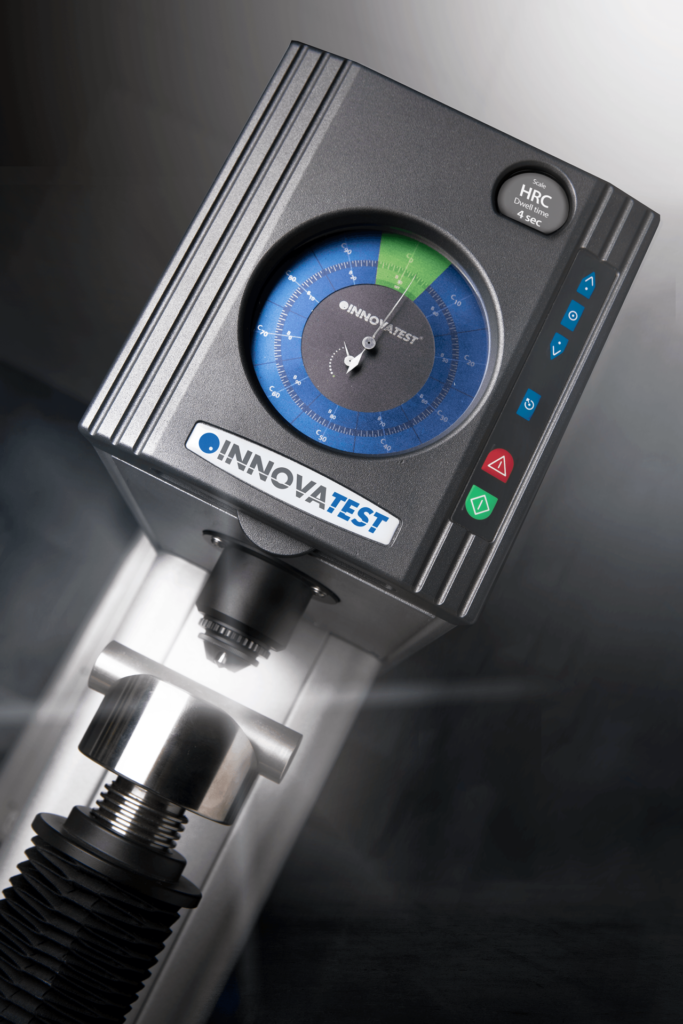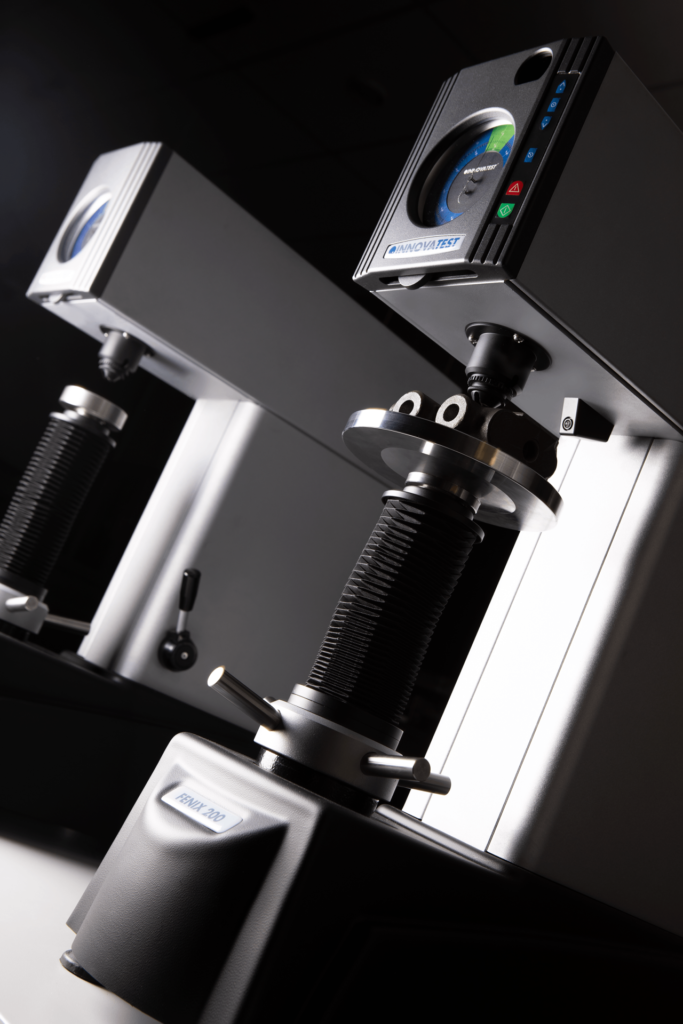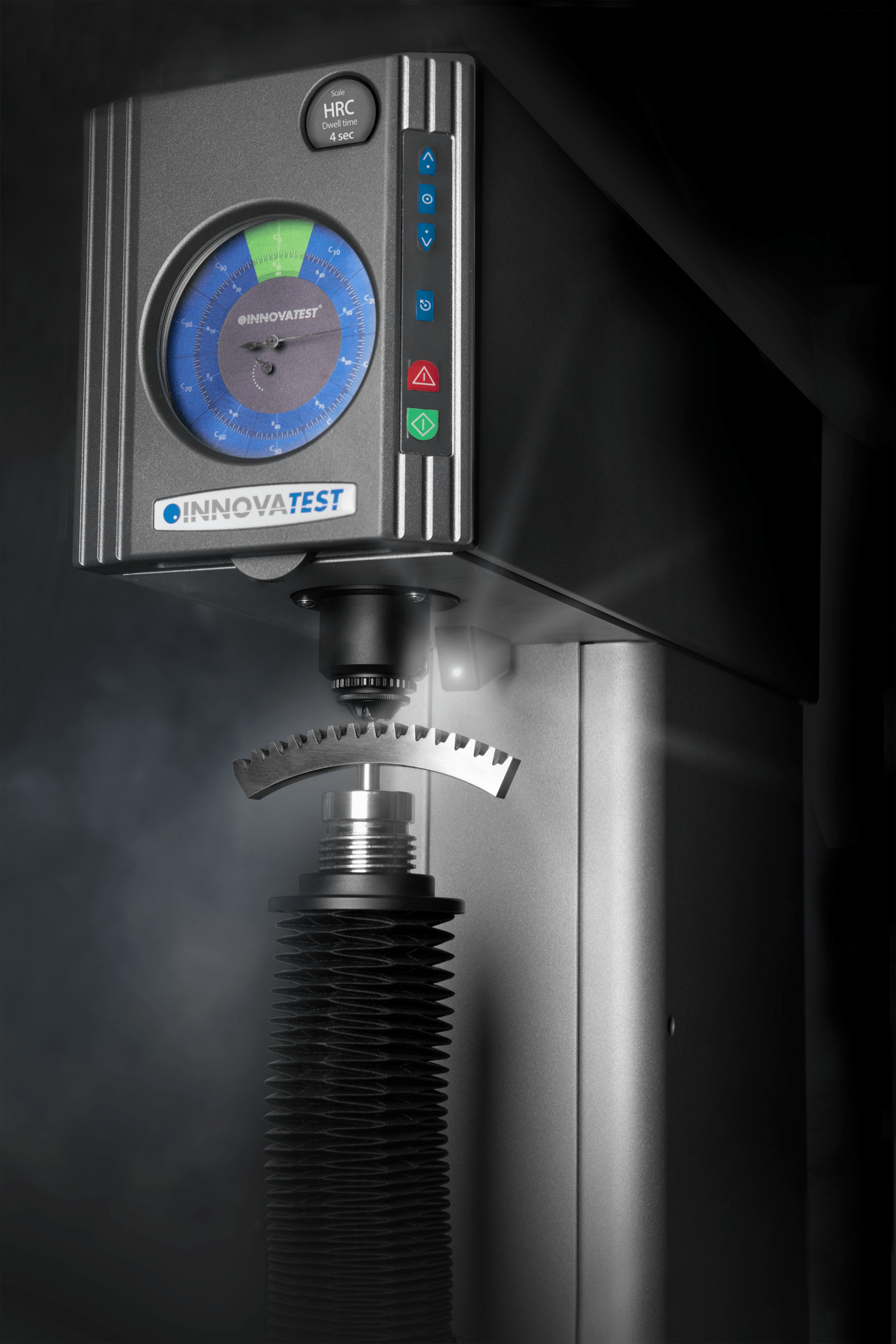The Rockwell hardness test is a commonly used method for measuring the hardness of different materials. Its scale is mostly used to define the hardness characteristics of metals including lead, thin steel, copper alloys, cemented carbides, zinc, titanium, iron and aluminium. The scale can also be administered in the measurement of some plastics.

How the Test Works
In this test, hardness measurements are achieved when an indenter is pressed into the material’s surface using a specific load. The indenter, in most cases, is made of diamond or steel ball. Given that metals vary, different approaches have to be used for different samples.
There are 30 different scales, and before settling for the right one, factors such as the size and shape of the materials, the limitations of scale and homogeneity have to be considered. Although there are many Rockwell tests, the hardest materials mostly employ Rockwell and Rockwell C.

The Application
The Rockwell hardness test is easy to perform and is more accurate than most other methods. It can be used on all metals except in situations where the material would introduce a lot of variations. For precise loading, the test axis has to be perpendicularly at 2 degrees. Before the application of this method, the preparation of the surface has to be carried out. The surface finish has to be clean before testing, and the decarburization resulting from the heat treatment eliminated.
The Rockwell hardness test is basically a method used to measure the hardness of polymer and metals. It may not give the ultimate measurement of performance, but it directly correlates to the wear resistance, strength and many other properties. It is a popular evaluation method because it is simple and cost-effective.

